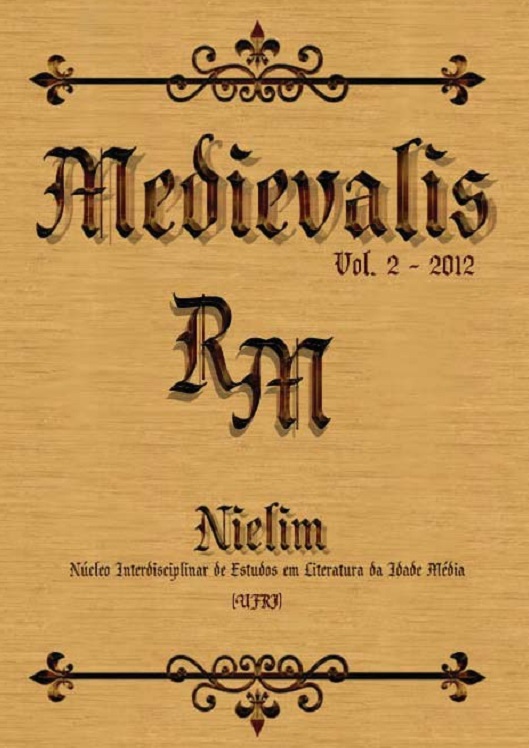Estado, Igreja e Sociedade: apontamentos sobre as concepções politicas de Egídio Romano e João Quidort na Baixa Idade Média
DOI :
https://doi.org/10.55702/medievalis.v1i2.44209Résumé
Resumo: Este trabalho tem como finalidade analisar o conceito de política nas obras dos pensadores medievais João Quidort (1270?-1306) e Egídio Romano (1247?-1316). Representantes do pensamento canônico, esses teólogos não se restringiram apenas em defender os dogmas da Igreja Católica, baseados em seus princípios religiosos deixaram registrado suas concepções a respeito da organização política da sociedade a qual eles pertenciam, bem como buscaram legitimar e defender os modelos de organização social nos quais acreditavam. Em um momento de intensas transformações no campo político e religioso, o poder clerical e o poder real travaram uma disputa em busca de definirem e também conservarem seu campo de influência. Essas disputas foram a tônica do período e provocaram mudanças que redesenharam o mapa europeu. Esses autores apresentam em suas obras visões antagônicas, entretanto, registram esse período histórico como testemunhas oculares sem deixar, é claro, suas acepções de lado. Desta forma buscaremos demonstrar seus argumentos destacando os pontos principais onde suas opiniões divergem. Baseado em uma análise bibliográfica, demonstraremos por meio desses autores o contexto histórico vivido por eles, criando um campo de compreensão acerca das disputas políticas entre o clero e as emergentes monarquias do período.
Palavras-chave: História Medieval; João Quidort; Egídio Romano; Igreja Medieval; Estado.
Abstract: This work aims to analyze the concept of politics in the works of thinkers medieval John Quidort (1270 ? -1306) and Egidio Romano (1247? -1316). Representatives of the thought canon, these theologians were not restricted only to defend the dogmas of the Catholic Church, based on their religious principles are no longer recorded their conceptions about the political
organization of the society to which they belonged to, as well legitimise and defend the models of social organization in which they believed. In a time of intense change in the political and religious power clerical and the real power waged a dispute in the search to define and also retain its field of influence. These disputes were the focus of the period and led to changes that later redesigned the map of europe. These authors present in their works opposing visions, however, reported that historical period such as eye-witnesses without fail, of course, their meanings of hand. This way we sought to demonstrate their arguments highlighting the main points where their opinions differ. Based on a literature review, we will demonstrate by means of these authors on the historical context lived in them, creating a field of understanding about
the political disputes between the clergy and the emerging monarchy of the period.
Keywords: Medieval History; John Quidort; Egidio Roman; Medieval Church; State.

